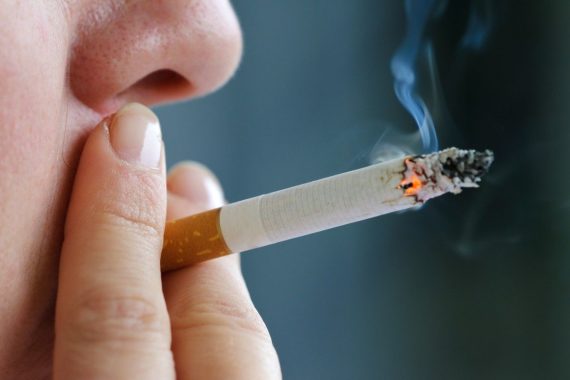Symptomatic smokers without COPD do not benefit from bronchodilator therapy

Patients with respiratory symptoms and a history of smoking but who do not meet the criteria for COPD do not benefit from treatment with dual bronchodilators, a US study has found.
Presenting their findings at the European Respiratory Society annual conference, the researchers said it had been assumed that the medicines would work for those with symptoms even if they did not have COPD but it had never been tested.
Results from a randomised trial, also published in the New England Journal of Medicine, of 535 individuals with a 10 or more pack-year smoking history and respiratory symptoms but preserved spirometry found no difference between dual bronchodilator therapy or placebo.
After 12 weeks, some adults in both groups saw slight respiratory improvements, such as coughing less, producing less phlegm, or feeling less winded.
But using a symptom scale, they found that 56% (128 of 227) of participants who received the medication saw improvements as did 59% (144 of 244) of those who took the placebo.
A range of sensitivity analyses also pointed to no significant treatment effect, they noted.
This contrasts with data showing the symptom benefits from the use of dual long-acting bronchodilators in people with a smoking history who meet the airway obstruction criteria for COPD.
The results show the importance of using spirometry to confirm a diagnosis of COPD, the researchers concluded but also that more effective treatments are needed for those without COPD but who have respiratory symptoms.
Patients end up on bronchodilator therapies because spirometry is infrequently done in primary care. It is unclear whether doctors think they are treating COPD or believe the medications will help anyway, they explained.
‘We’ve assumed these medications worked in patients who don’t meet lung function criteria for COPD, but we never checked,’ said Professor MeiLan Han, professor of internal medicine at the University of Michigan. ‘We now know these existing medications don’t work for these patients.’
She added that the study showed bronchodilator therapy only helps patients with enough lung damage that would result in abnormal spirometry readings.
‘The next question is, can we develop more targeted therapies for these patients who are on the milder end of the spectrum.’
Professor John Hurst, professor of respiratory medicine at University College London said the study was very interesting. ‘Dual bronchodilator didn’t improve symptoms in symptomatic smokers without airflow obstruction.
‘It emphasises that we should only be treating people for COPD when we have spirometric evidence that they actually have COPD.’
Visit Pulse Reference for details on 140 symptoms, including easily searchable symptoms and categories, offering you a free platform to check symptoms and receive potential diagnoses during consultations.









